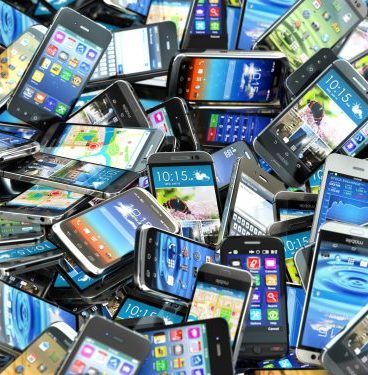Electronic waste and the circular economy
The UK produces 24.9kg of electronic waste (e-waste) per person, higher than the EU average of 17.7kg. Electronic waste in the UK is managed under the EU’s Waste Electrical and Electronic Equipment (WEEE) Directive and The Waste Electrical and Electronic Equipment Regulations 2013.

A Government consultation is currently considering ideas to incentivise sustainable product design and increase recycling. It has also committed £8 million in funding over the next three years to support research, behaviour change and local projects to boost reuse and recycling.
Electronic waste is worth at least $62.5 billion annually. This value comes from high value metals in electrical components such as gold, silver, copper, platinum and palladium. Despite the intrinsic value of e-waste, recycling rates are low and much of the world’s e-waste ends up in landfill. Although the technology to recover materials and metals exists, it is expensive and under-utilised.
Europe and the US account for almost half of all e-waste globally, with the EU predicted to produce 12 million tonnes by 2020.
There are now more devices connected to the internet than there are humans on the planet and this trend is predicted to continue, fuelled by rising consumer demand and decreasing costs. With this, has come a rapid increase in electronic waste, the majority of which ends up in landfill, incinerated, illegally traded or treated in a sub-standard way.
Chair of the Environmental Audit Committee, Mary Creagh MP, said:
“Our old fridges, freezers, computers, TVs, kettles and mobile phones are piling up in a ‘tsunami of e-waste’.
“New phone launches, cheaper goods, and built-in obsolescence have contributed to the growth of electronic waste in recent years.
“The UK produces more e-waste than the EU average. We are missing EU targets and are one of the worst offenders for exporting waste to developing countries, who are ill equipped to dispose of it in a socially and environmentally responsible way.
“Our attitude to e-waste is unsustainable and the need for radical action clear. We will be investigating the UK’s e-waste industry and looking at how we can create a circular economy for electronic goods.”
Promoting the circular economy – recycle and reuse.
The secondary market for the utilisation of used telecoms equipment, also known as the Green Telecoms Market, is booming. It provides a way for businesses to continue operating their end-of-life telephone systems for as long as they need them.
Keeping existing telecoms equipment in use saves it from ending up as e-waste and reduces the environmental impact of new equipment production. It also makes good business sense.
Long committed to sustainability and the re-use and recycling of used telecoms equipment, MF Communications is BS EN ISO 14001 compliant, accredited as an environmentally responsible organisation and fully compliant with the Waste Electrical and Electronic Equipment (WEEE) Directive.
Reducing electronic waste and minimising the environmental impact of production and consumption of electronic goods, should be at the top of every organisation’s agenda.
At MF Communications, our aim is to help organisations realise the value of their existing telecoms equipment.
With our Asset Management and Recovery Scheme, we can help companies to free up space by relieving them of any obsolete, legacy or unwanted telecoms equipment. Not only does this ensure this surplus-to-requirement equipment is disposed of in the most responsible way, it can also generate an additional income for the business.
Quality without compromise.
At MF Communications, our fully remanufactured telecoms equipment comes with the same performance, quality, and peace of mind as brand new equipment bought directly from the manufacturer. Spare parts, telephones, PSUs, cables, consoles and many other remanufactured items come boxed, with new cords, remade plastic housing and literature packs, as well as a one-year warranty.
Call +44(1892) 514687 or contact us to find out how we can help.


